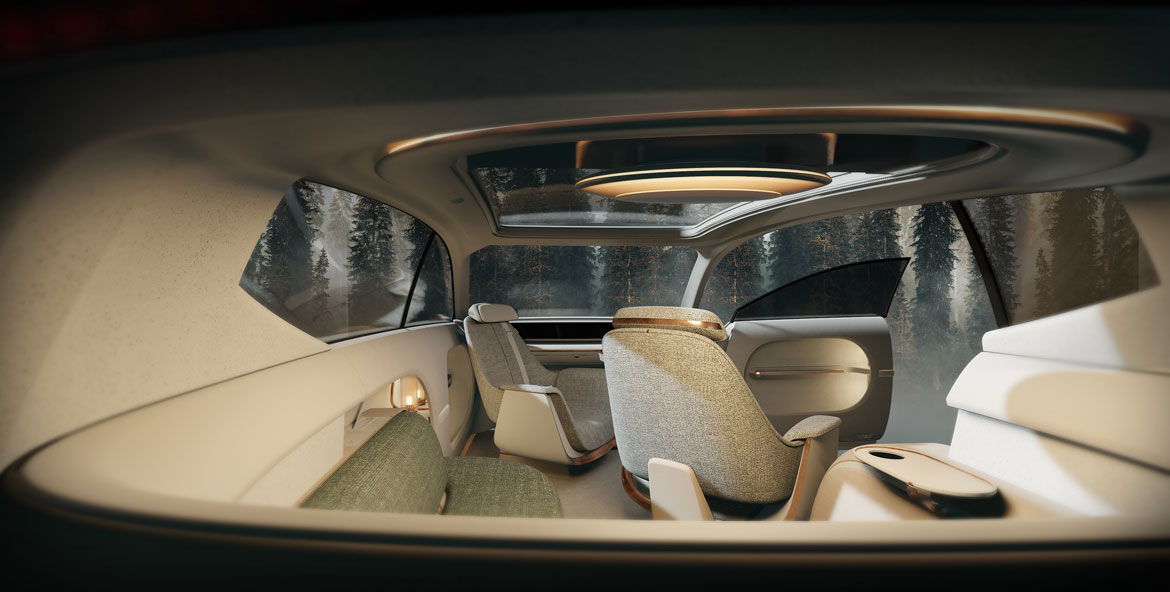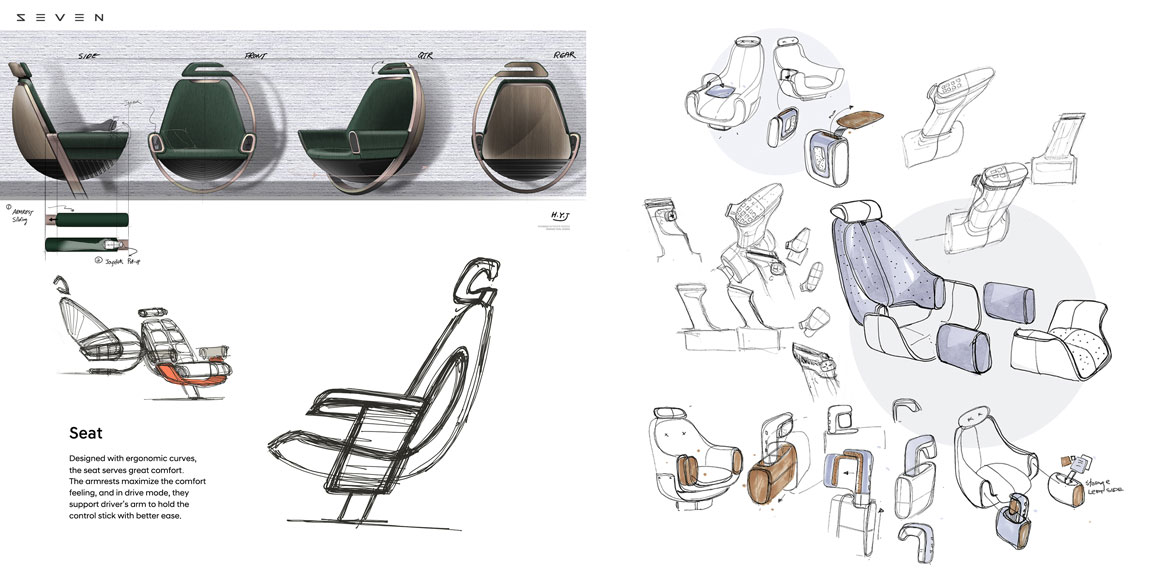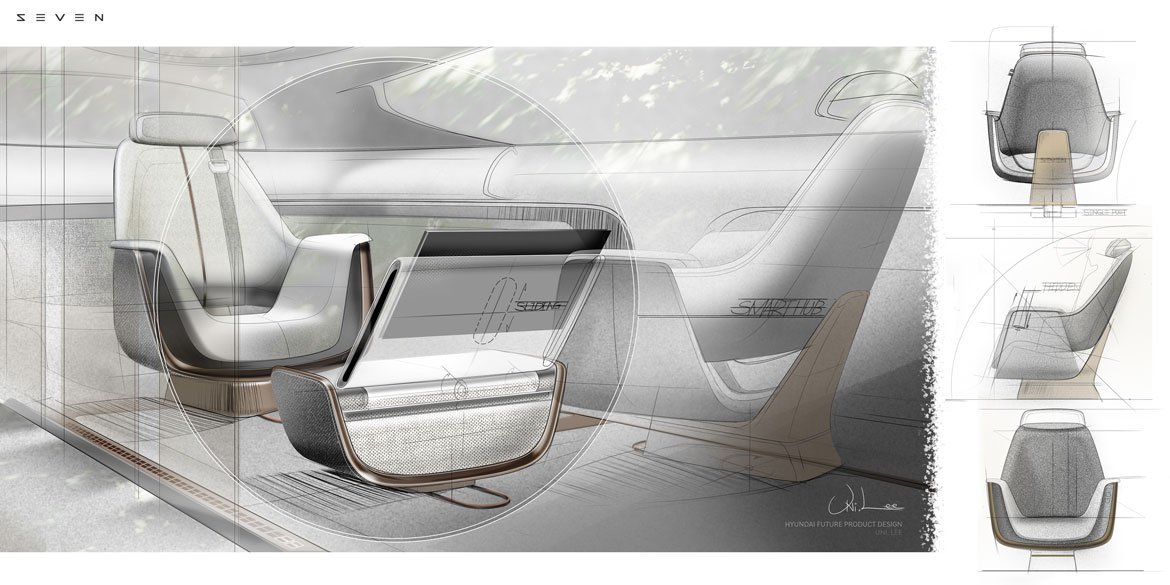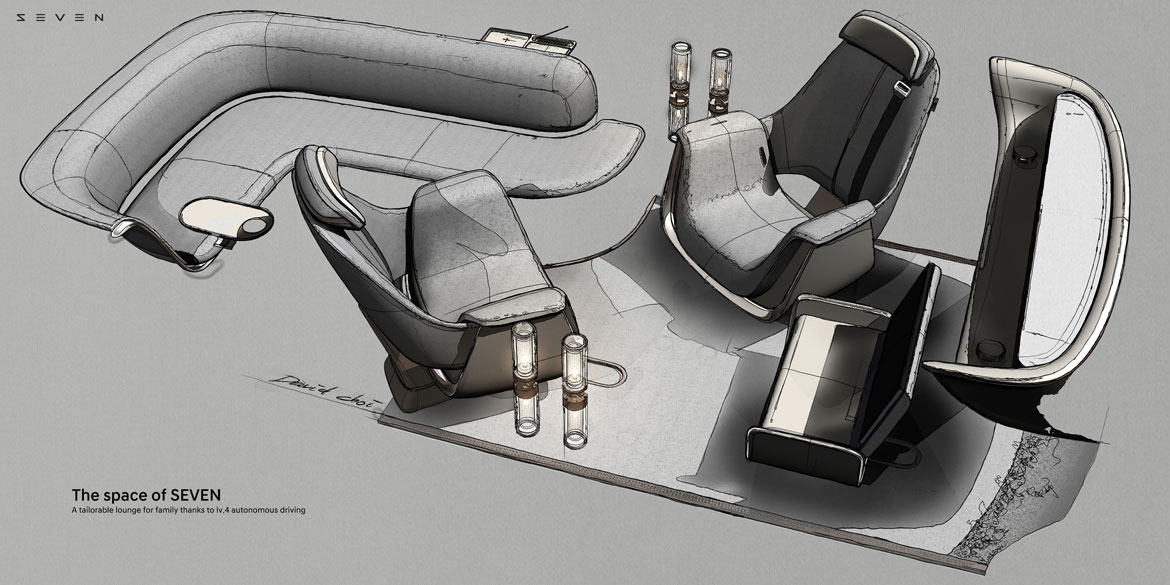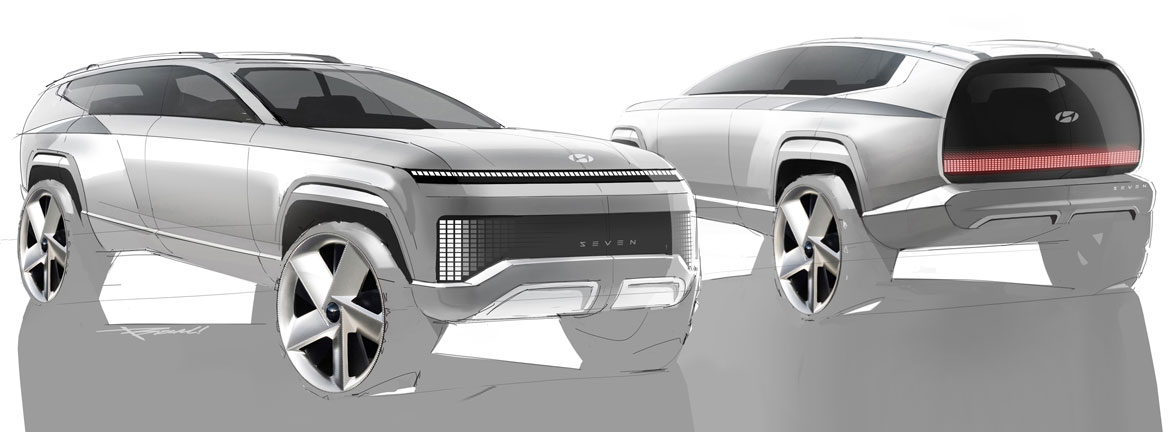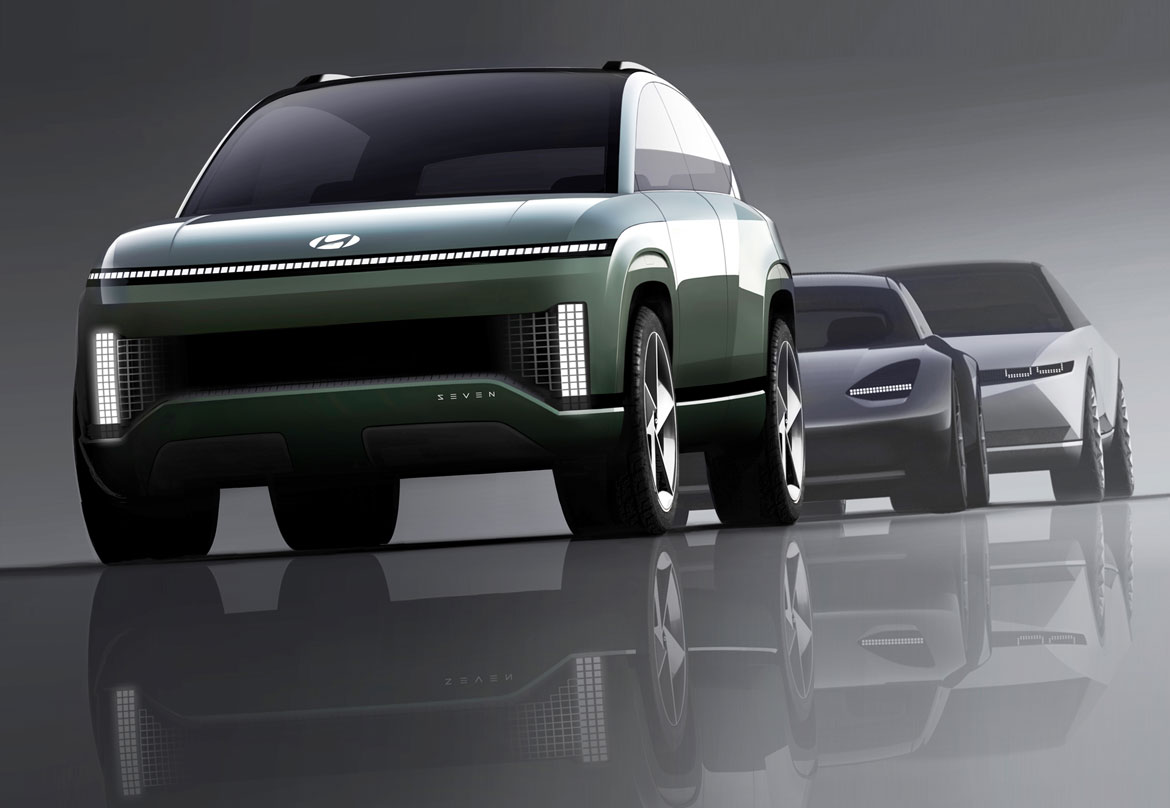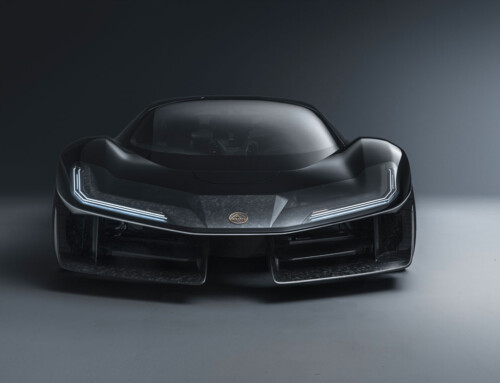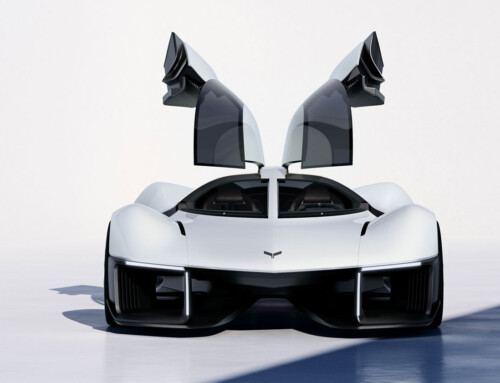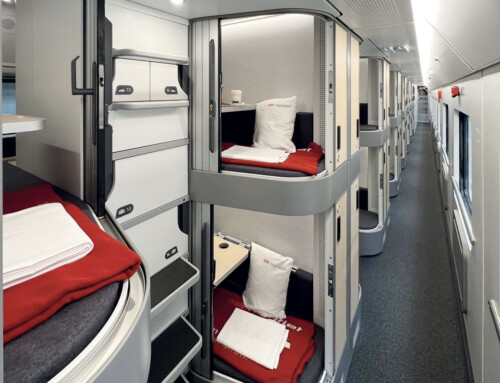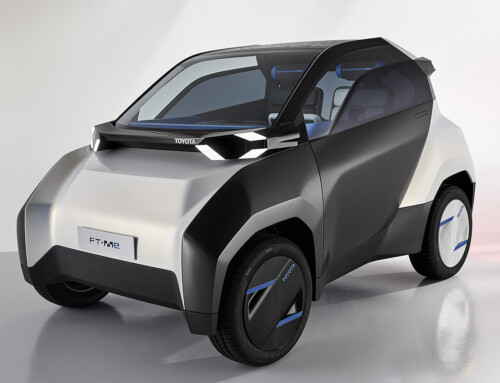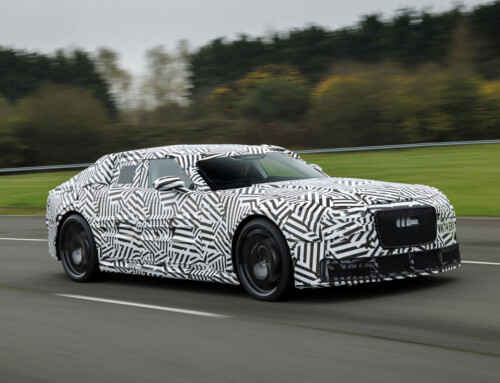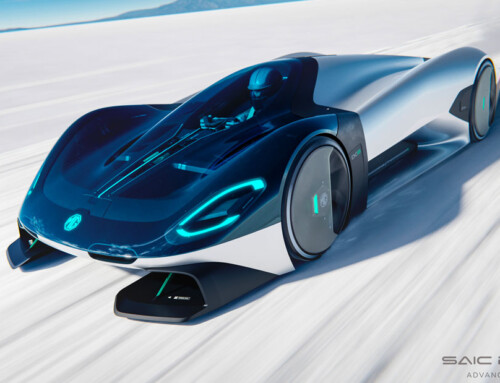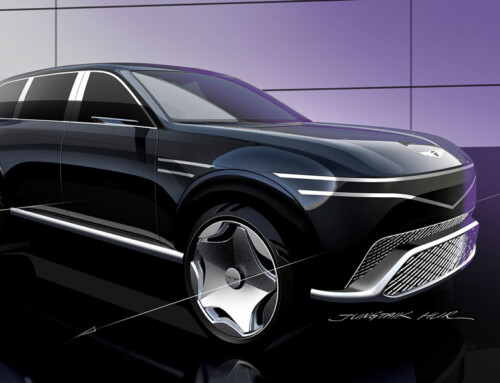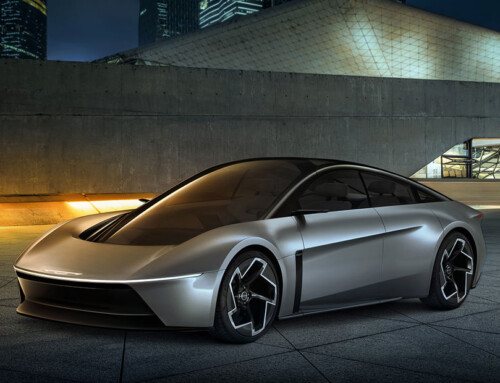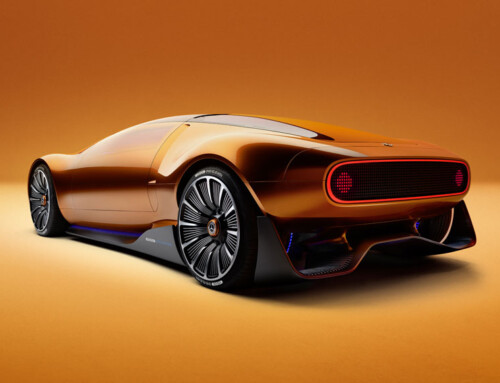The Seven Concept, recently presented at AutoMobility in Los Angeles and a preview of what the Ioniq 7 electric SUV will be in a fairly short time, is perhaps the first car that wants to give an answer to the Covid pandemic. Apart from all the innovations that induce SangYup Lee, head of global design of the Hyundai group, to talk about "a new path" and "an example of what an SUV must become in the electric age", there is in fact a constant reminder to the hygiene of both air and materials.
Self sterilizing car
With the car stopped and empty, for example, an ultraviolet ray sterilization process is started to eliminate viruses and germs. While on the move, the airflow, instead of from the dashboard towards the rear of the car, occurs from the roof towards the floor, as on airliners, thus creating a sort of isolation between the various parts of the passenger compartment. The abundant use of copper, even in textile fibres, adds a certain degree of inhibition for viruses. It remains to be seen how much of all this will remain in the production of Ioniq 7.
Aerodynamic shapes
Certainly, the exterior design will not change much, dictated by the design philosophy that the Korean house has baptized Sensual Sportiness, a harmony between proportions, architecture, style and technology that is developed in different ways according to need. “We wanted to define a standard for what a Sport Utility Electric Vehicle should be”, explains Loasby. “First of all with a shape that is as aerodynamic as possible. Secondly, thanks to that aerodynamic profile that gives a rather high curved roof, and to the windshield pushed forward to the maximum, we have an enormous interior space (the wheelbase is 3.20 meters) and we have been able to offer a flexible environment very similar to the living room of a house, with a curved sofa in the back. Third, the novelty of hygiene: there is even a receptacle where shoes are purified."
A long wheelbase for maximum roominess
Based on Hyundai's E-GMP platform (Electric-Global Modular Platform), in which the flat bottom and long wheelbase allow you to design an entirely new class of cars, the Seven concept has a pure silhouette that sets it apart from a typical SUV. It was then thanks to the designers if the minimalism of the forms did not deprive it of an imposing presence. If the exteriors are captivating, it is the interiors that mark the run-up to the future of mobility and connectivity in the name of AD, autonomous driving.
Sustainable materials
Technically, this concept - and also the future Ioniq 7, it is to be assumed - has a range of 480 kilometres and can recharge the batteries from 10 to 80 percent in 20 minutes. But the emphasis - as it has now also been seen elsewhere - is placed on the use of renewable or recycled materials: organic paints and bioresins, for example, which reduce pollution in the production process, but also bamboo wood and self-cleaning fabrics.
A combination of various elements
And here too the concept of Sensual Sportiness reappears: "The ultimate goal - observes Loasby - is the attractiveness of the whole, through the combination of various elements. If the public wants to see and touch them, as I saw doing in Los Angeles on the curves of the Seven, it means that we too have touched something: their senses.”
(Full article in A&D n. 253)

